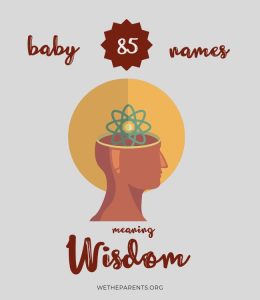For all you parents searching for a snake-inspired name for your little newborn, we’ve compiled a list designed to get you slithering in the right direction!
Historically speaking, snakes represent fertility, healing, and eternal life and have for centuries been revered as the natural guardians of temples and other sacred places, making them prominent among numerous cultures throughout history.
Of course, snake names can also be found wherever serpents feature prominently in mythological movies or television shows.
Our list of names that mean snake or serpent is suitable for both boys or girls who possess those elusive, but intuitive traits of creativity, wisdom, and flexibility.
Male baby names
- Aesculapius – (Ancient Greek) Meaning “the god of healing” composed of the elements “aesk” meaning “to cut” and “laos” meaning “people”. Famous namesake: Aesculapius, the Greek god of healing.
- Asp – (Ancient Egyptian) Meaning “serpent” or “snake”, derived from the Egyptian word “aspa”.
- Cobra – (Hindu) Meaning “hooded snake”, derived from the Sanskrit word “kobara”.
- Ekeko – (Incan) Meaning “snake”, associated with the god of the same name, who was depicted as a snake.
- Hisser – (English) Meaning “one who hisses”, derived from the Old English “hissian”.
- Hydra – (Greek) Meaning “water snake” derived from the Greek “hydor”. Famous namesake: Hydra, the nine-headed monster in Greek mythology.
- Jormungandr – (Norse) Meaning “enormous monster”, derived from the Norse “jormungandr”. Famous namesake: Jormungandr, the world-encircling serpent in Norse mythology.
- Kaa – (Hindu) Meaning “python”, derived from the Sanskrit word “kaa”. Famous namesake: Kaa, the python in Rudyard Kipling’s The Jungle Book.
- Leviathan – (Hebrew) Meaning “great sea monster”, derived from the Hebrew “livyathan”. Famous namesake: Leviathan, the sea monster in the Hebrew Bible.
- Nag – (Sanskrit) Meaning “snake”, derived from the Sanskrit word “naga”.
- Ophiuchus – (Greek) Meaning “serpent holder”, derived from the Greek “ophiuchus”. Famous namesake: Ophiuchus, the constellation of the snake-holder in Greek mythology.
- Python – (Greek) Meaning “python”, derived from the Greek “puthon”. Famous namesake: Python, the serpent in Greek mythology.
- Sarpa – (Sanskrit) Meaning “serpent”, derived from the Sanskrit word “sarpa”.
- Shesha – (Hindu) Meaning “that which remains”, derived from the Sanskrit “shesha”. Famous namesake: Shesha, the multi-headed snake in Hindu mythology.
- Viper – (Latin) Meaning “venomous snake”, derived from the Latin “vipara”.
- Zmok – (Slavic) Meaning “serpent”, derived from the Slavic “zmok”.
Female baby names
- Ananta – (Hindu) Meaning “eternal” or “infinite”, this name is derived from the Hindu word for “snake” and is associated with the serpent deity, Ananta.
- Basilisca – (Greek) Meaning “king of snakes”, this name is derived from the mythical creature known as the basilisk.
- Delphyne – (Greek) Meaning “womb”, this name is associated with the Greek goddess Delphyne who was half-woman, half-snake.
- Echidna – (Greek) Meaning “she-viper”, this name is associated with the half-woman, half-snake monster from Greek mythology.
- Frida – (Germanic) Meaning “peaceful ruler”, this name is associated with the Norse goddess of fertility, Frigg, who was sometimes depicted as a giant snake.
- Hisslop – (English) Meaning “hissing snake”, this is an English name derived from the sound a snake makes.
- Ijapa – (Yoruba) Meaning “tortoise”, this is a Yoruba name associated with the mythical creature Ijapa the Tortoise who was said to have transformed into a snake.
- Lif – (Norse) Meaning “serpent”, this is a Norse name associated with the giant serpent from Norse mythology who encircled the world and was slain by Thor.
- Medusa – (Greek) Meaning “guardian”, this is a Greek name associated with the monstrous Gorgon from Greek mythology who had snakes instead of hair.
- Nagini – (Hindi) Meaning “snake” or “serpent”, this is a Hindi name associated with the serpentine character from the Harry Potter series.
- Ophion – (Greek) Meaning “serpent”, this is a Greek name associated with the primordial god Ophion who was said to have taken the form of a serpent.
- Ran – (Norse) Meaning “goddess of the sea”, this is a Norse name associated with the giant sea serpent from Norse mythology.
- Serpentina – (Latin) Meaning “serpent”, this is a Latin name derived from the word “serpent”.
- Tiamat – (Akkadian) Meaning “primeval goddess”, this is an Akkadian name associated with the primordial goddess from Mesopotamian mythology who was depicted as a dragon or a serpent.
- Uma – (Sanskrit) Meaning “flashing light”, this is a Sanskrit name associated with the Hindu goddess Uma who was sometimes depicted as a snake.
Unisex baby names
- Apep – (Egyptian) Unconquerable. Apep was an ancient Egyptian deity of chaos and evil represented as a giant snake.
- Boa – (Hebrew) To come with strength. Boa was a Biblical figure, the daughter of Zephon.
- Coby – (Hebrew) Like a cobra. Coby is a diminutive of Cobalt.
- Ishtar – (Sumerian) A Goddess of fertility and love. Ishtar was a Sumerian Goddess of love and war, often depicted as a snake.
- Ladon – (Greek) A dragon with many heads. Ladon was a dragon-like creature in Greek mythology that guarded the Garden of the Hesperides.
- Naga – (Sanskrit) A serpent or dragon. Naga is the Sanskrit word for “snake” and is used in Hindu mythology to refer to a type of serpentine creature.
- Ophir – (Hebrew) Gold. Ophir was an area in the ancient world, possibly located in modern-day Yemen, which was known for its gold.
- Slither – (English) To move along smoothly. Slither is a verb originally derived from the Middle English verb “slithen”, which means “to move along smoothly”.
- Tiamat -Sotep – (E (Babylonian) Mother of dragons. Tiamat was a primordial goddess in Babylonian mythology who was believed to be the mother of dragons.
- Tut – (Egyptian) Protector of the land. Tut was a snake god in ancient Egyptian mythology who was believed to be the protector of the land.
- Uraeus – (Egyptian) A sacred cobra. Uraeus was a cobra-shaped symbol of divine authority in ancient Egypt, often worn on the head of royalty.
- Varanus – (Latin) A monitor lizard. Varanus is a genus of monitor lizards, which are often referred to as “water monitors” or “water snakes”.







